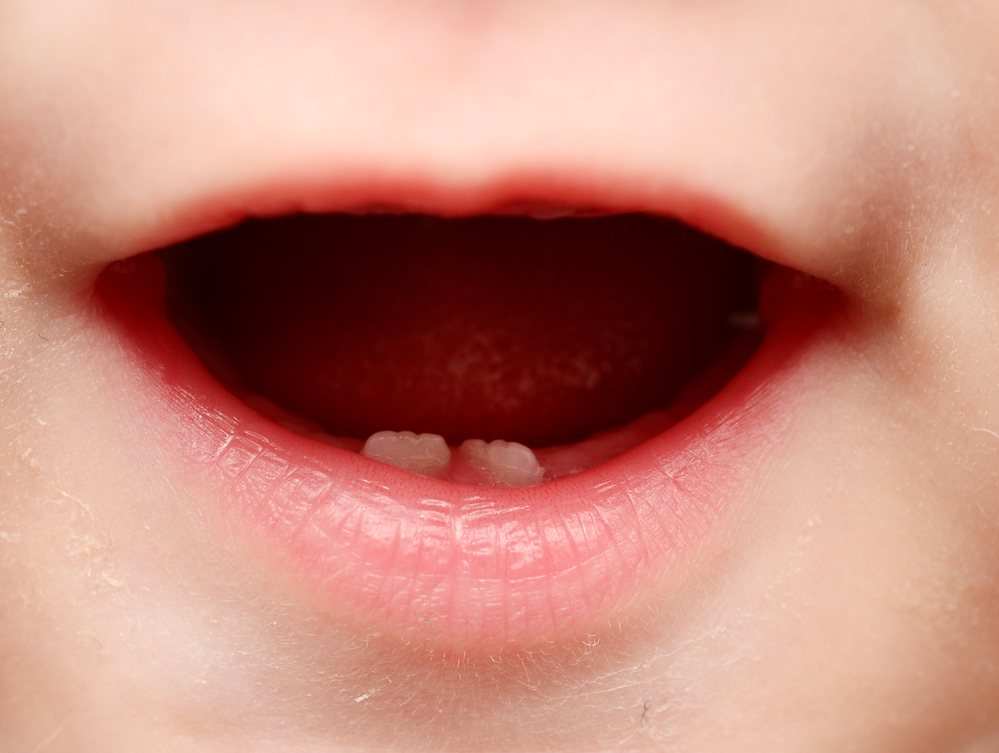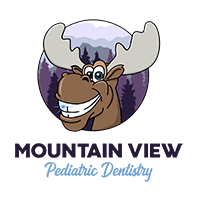All of us have experienced having baby teeth and if you have a young child, you have probably seen the process or beginnings of baby teeth. But why do we have baby teeth anyway? What purpose do they serve and what determines how they fall out or when they form? These are common questions that can be answered by most dentists, but here is some quick information on why humans (and others) have these small teeth first.

The Process Of Baby Teeth
You may be shocked to know that babies can start forming teeth before they are even born. These baby teeth are known as milk teeth or deciduous teeth that start forming while the fetus is still in the womb. On rare occasions these teeth may pop through before your baby is born, but most children’s teeth start coming in when they are about 6 months old.
The first teeth to show through are usually the front middle teeth on the bottom called the central incisor. The next tooth is usually right next to the first, followed by the top 4 upper incisors right in the front of the mouth. Each baby is different and may get their baby teeth sooner or a little later. The back molars are usually all present by about 2 ½ years.
The Purpose Of Baby Teeth
Humans are diphyodont which means we grow two sets of teeth in our life. Our first set of teeth are essentially placeholders for the future permanent teeth. If baby teeth do not come in properly or have to be removed too early, this creates less space for adult teeth and can create a crowded living space inside the mouth for the bigger teeth.
Infants and children’s mouths are too small to accommodate the larger teeth we use for our adult years, so baby teeth help to further develop the mouth and jaw. They help the jaw keep its length and ensure the proper placement of new teeth when they grow.
Are baby teeth softer than permanent teeth? Yes, baby teeth tend to have a thin layer of enamel which makes them softer than the teeth you will find in your mouth. Taking care of children’s teeth is important because they are softer and include less enamel. This makes them more prone to cavities, decay and damage.
While we do lose these teeth, this does not mean we can neglect them as they are essential to making enough room for future teeth.

Do All Mammals Have Baby Teeth?
Humans are not the only mammals that grow baby teeth. Almost all other mammals have a smaller set of teeth that help them to learn to chew that fall out as the jaw and skull grows. As mammals grow into adulthood they often swallow their baby teeth accidentally and it comes out undigested.
What You Can Do To Help
Taking care of baby teeth is important because they help children’s oral health develop and are essential for having good adult teeth. As a parent, you can help your child learn about their teeth and what they do. Forming good oral hygiene while they are young can help prevent the premature loss of baby teeth and help them take care of their teeth as an adult.
As soon as you notice your infant’s teeth come in you should start cleaning them. You can also help protect older children with fluoride. Helping kids form good and healthy habits can keep their teeth strong and show them that caring for your teeth is fun. Make sure that you and your child are visiting the dentist regularly.
Moose Dentist
At Mountain View Pediatric Dentistry we want to help your children feel comfortable and know that their teeth matter. You are welcome to come visit our office before your first visit, or read our blog about how to prepare your child for the dentist.
Our goal is to treat our patients like they are our own children. We want what is best for them and strive to treat them with patience. Our offices are located in Pleasant View and Farmington to accommodate many Utah residents.

We also want to celebrate our patients who continue to be cavity free. Our cavity free club includes a reward that can be redeemed at many local businesses for those children who don’t have cavities during their 6 month visit. A wooden nickel will be given to the patient to be redeemed at certain businesses for a small treat.
You can read more about our cavity free program, what services we offer and testimonials on our full website. Contact us at (801) 737-5437 for Pleasant View or (801) 447-5437 for Farmington to schedule an appointment today.

